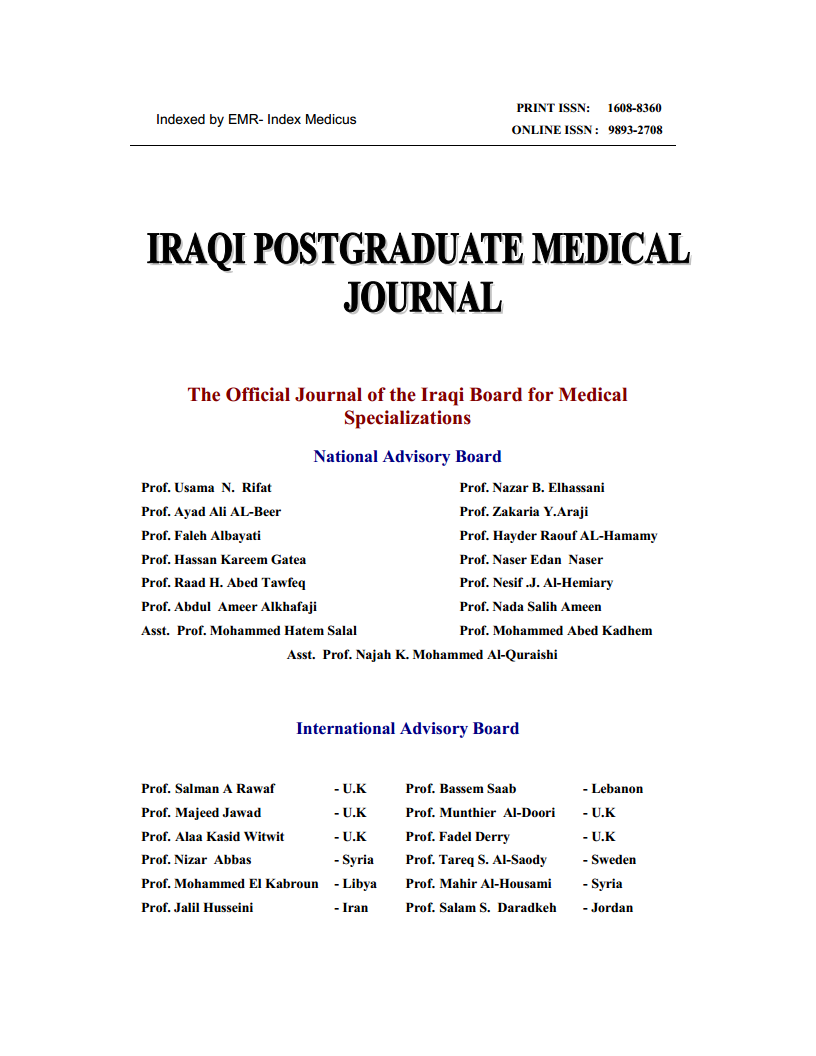Abstract
BACKGROUND:
Cerebral metastases are by far the most common intracranial tumors in adults. gamma knife
radiosurgery has arguably been the most important advancement in the management of metastatic
brain tumors since the 1980s.
OBJECTIVE:
To evaluate the effectiveness of gamma knife radiosurgery as a treatment of metastatic brain
tumors.
METHODS:
This is a prospective study (the first trial in Iraq) of 27 patients (42 tumors) of brain metastasis
between March 2016 and October 2017. Imaging follow up done in 6 months and 12 months,
clinical follow up done in 3 weeks and 3 months.
RESULTS:
In the first six months 81.0% of the MBTs were regressed or remain stable in size. After 3
months post GKS, 81.5% patients showed neurological improvement. 82.4% of the patients<65
years old survive for 12 months and 85% of patients with KPS>70 survive for 12 months.
CONCLUSION:
The routine blood investigations, the gender and the location were of no significance on patients’
general outcome or the tumor/edema response to gamma knife. Presence of extracranial
metastasis, single or multiple MBTs found to have important effect on patients’ survival.
Cerebral metastases are by far the most common intracranial tumors in adults. gamma knife
radiosurgery has arguably been the most important advancement in the management of metastatic
brain tumors since the 1980s.
OBJECTIVE:
To evaluate the effectiveness of gamma knife radiosurgery as a treatment of metastatic brain
tumors.
METHODS:
This is a prospective study (the first trial in Iraq) of 27 patients (42 tumors) of brain metastasis
between March 2016 and October 2017. Imaging follow up done in 6 months and 12 months,
clinical follow up done in 3 weeks and 3 months.
RESULTS:
In the first six months 81.0% of the MBTs were regressed or remain stable in size. After 3
months post GKS, 81.5% patients showed neurological improvement. 82.4% of the patients<65
years old survive for 12 months and 85% of patients with KPS>70 survive for 12 months.
CONCLUSION:
The routine blood investigations, the gender and the location were of no significance on patients’
general outcome or the tumor/edema response to gamma knife. Presence of extracranial
metastasis, single or multiple MBTs found to have important effect on patients’ survival.
Keywords
Gamma knife surgery
Stereotactic radiosurgery
